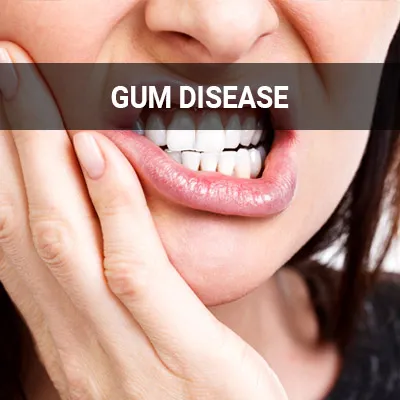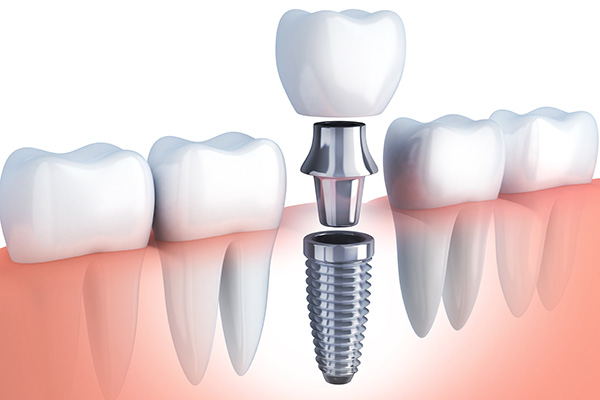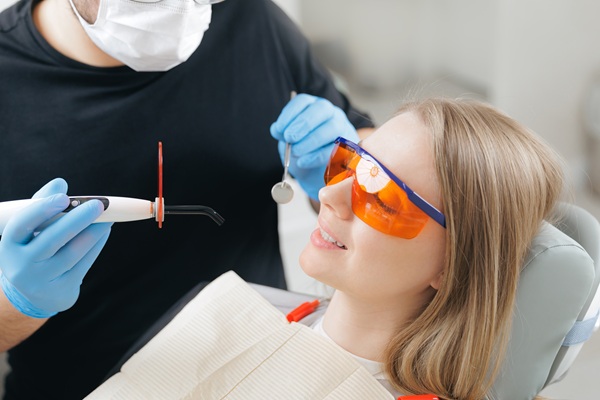Periodontics Weymouth, MA
Periodontics refers to a dental field that focuses primarily on diseases and conditions affecting the gums and supporting tooth structures. Periodontists provide services in diagnosing, preventing, and treating patients with periodontal, gum, and other oral diseases. Periodontal treatment can greatly improve symptoms, reduce pain, and prevent further dental complications from arising.
Periodontal treatment is available at Dr. Frederick F. Nafash and Associates in Weymouth and the surrounding area. We can help curb symptoms and keep oral diseases under control. Call us today at (617) 982-1649 to schedule an appointment or learn more about our services.
Why Periodontics
Though many patients may have periodontal needs that a general dentist can manage, it is essential for patients with signs of periodontal disease to see a periodontist. Periodontists are dentists that specialize in preventing, diagnosing, and treating periodontal disease. They also specialize in placing dental implants and treating oral inflammation.
In addition to completing four years of dental school, periodontists must undergo three additional years of training to become familiar with the best practices for diagnosing and treating periodontal disease and performing cosmetic periodontal procedures. A trained specialist can best manage moderate to severe periodontal disease, along with more complex cases.
“Periodontists are dentists that specialize in preventing, diagnosing, and treating periodontal disease.”
Types of Periodontal Procedures
Periodontists offer a wide variety of procedures, including both hard tissue procedures and osseous procedures. Osseous procedures are any periodontal procedures that reduce bacteria underneath the gums. This process is also known as osseous surgery. During this treatment, Dr. Frederick F. Nafash and Associates will also smooth down any areas of bone damage or bone irregularities. Periodontal regeneration techniques may also be necessary if the bone is severely damaged, and the gums will be sewn back together.
Periodontists may also choose to manipulate the hard tissue to remove bacteria from the pockets, thus stopping the spread of periodontal disease and infection. Thanks to modern technological advances, periodontists can perform such procedures via non-invasive laser periodontal therapy, which removes any inflamed gum tissue from around the tooth's root and tartar and plaque below and around the gumline.
“Periodontists offer a wide variety of procedures, including both hard tissue procedures and osseous procedures.”
Detecting Periodontal Disease
Typically, patients are screened for gum and periodontal disease during their routine check-ups. Dentists can identify and diagnose periodontal disease by checking for gum bleeding, swelling, firmness, and pocket depth (space between teeth and gum line). They also assess teeth movement, sensitivity, and proper alignment. If there are concerning symptoms, they may also examine the patient's jawbone to detect any broken bones surrounding the teeth.
Stages of Periodontal Disease
The three stages of periodontal disease are gingivitis, periodontitis, and advanced periodontitis. Gingivitis is the beginning stage and refers to inflammation of the gums. Treatments for gingivitis include a professional cleaning and special mouthwash that eliminates bacteria from the gums. Periodontitis, the second stage, occurs when bacteria or infection has spread beneath the gum line. This stage is also reversible and can be treated by professionally cleaning the pockets using a special tool. Advanced periodontitis, the final stage, refers to when the infection damages the underlying bone and surrounding tissues, causing tooth loss or severe shifting.
“Dentists can identify and diagnose periodontal disease by checking for gum bleeding, swelling, firmness, and pocket depth.”
Check out what others are saying about our dental services on Yelp: Periodontics in Weymouth, MA
Preventing Periodontal Disease
As mentioned above, if left untreated, periodontal disease can lead to gum recession and even tooth loss. Studies have also shown that gum disease may be linked to other systemic diseases, making it all the more important to maintain one's oral health. Fortunately, preventing periodontal disease is relatively easy.
The main way to prevent periodontal disease is to maintain a good oral hygiene routine. This involves brushing one's teeth at least twice a day, flossing nightly, and swishing with mouthwash. Those who are in at-risk groups should act accordingly and see a periodontist annually. A yearly comprehensive periodontal evaluation can assess one's gum health and ensure that patients are on the right track.
“The main way to prevent periodontal disease is to maintain a good oral hygiene routine.”
Questions Answered on This Page
Q. How do dentists detect periodontal disease?
Q. What happens during periodontal surgery?
Q. What are some examples of hard tissue procedures and osseous procedures?
Q. How can I prevent periodontal disease?
People Also Ask
Q. What are common signs of gum disease?
Q. How is gum recession treated?
Q. What are the reasons for tooth extraction?
Q. What are some of the signs indicating a need for tooth extraction?
Periodontal Surgery
In severe cases and advanced stages, some patients may require periodontal surgery to effectively remove an infection. Periodontal surgery consists of a variety of treatments that target different regions of the mouth. Surgical procedures include flap surgery, bone grafting, guided tissue regeneration, or soft tissue grafts.
During periodontal surgery, a small cut or cuts are made in the gums, lifting back a section of tissue. This allows the periodontist to remove tartar, bacteria, and infection from the gum sockets and the teeth. The gums are then reattached to fit more securely on the teeth. The entire process takes about two hours and the recovery period can take up to two weeks.
“Surgical procedures include flap surgery, bone grafting, guided tissue regeneration, or soft tissue grafts.”
Frequently Asked Questions About Periodontics
Q. Will my insurance cover periodontal treatment?
A. While the answer to this question varies on a case-by-case basis, most dental insurance policies tend to cover periodontal treatment. For the most accurate possible answer, speak to your carrier directly. Do not forget to bring your medical and dental benefit information and cards to your appointment.
Q. Can my kids develop periodontal disease?
A. It is rare for children to develop periodontal disease, though it does sometimes occur (particularly in adolescents). In any case, it is essential for patients of all ages to learn the importance of keeping a good oral hygiene routine to keep periodontal disease at bay in the future.
Q. Are there any consequences to missing teeth?
A. Yes, missing teeth are more than just an aesthetic issue. The teeth surrounding the gap may shift, and it may be more difficult for you to chew your food properly or even affect the way you speak. As such, it is crucial to address missing teeth as soon as possible.
Q. What can I expect from my first periodontal examination?
A. During your first periodontal examination, you will undergo a thorough physical examination of your mouth. Along with other things, Dr. Frederick F. Nafash and Associates will check the health of your gums, the status of your teeth, and the alignment of your bite. We may also perform certain imaging tests to make an accurate official diagnosis.
Q. What else can periodontists do?
A. While most periodontists spend most of their time diagnosing and treating gum disease, they can also perform various other procedures. These include placing dental implants when natural teeth cannot be saved, monitoring implants, correcting gum recession, and coordinating comprehensive dental care along with your dentist.
Periodontic Terminology
Call Us Today
Periodontal treatments can help prevent, curb, or treat periodontal disease and help you maintain a healthy oral cavity. Call us today at 617-982-1649 to schedule an appointment or learn more about our services.
Helpful Related Links
- American Dental Association (ADA). Glossary of Dental Clinical Terms. 2025
- American Academy of Cosmetic Dentistry® (AACD). Home Page. 2025
- WebMD. WebMD’s Oral Care Guide. 2025
About our business and website security
- Dr. Frederick F. Nafash and Associates was established in 1990.
- We accept the following payment methods: American Express, Cash, Check, Discover, MasterCard, and Visa
- We serve patients from the following counties: Norfolk County, Suffolk County and Plymouth County
- We serve patients from the following cities: Braintree, Quincy, Milton, Weymouth, Dorchester, Hingham, Canton, Boston, Westwood and Rockland
- National Provider Identifier Database (1841441649). View NPI Registry Information
- Healthgrades. View Background Information and Reviews
- Norton Safe Web. View Details
- Trend Micro Site Safety Center. View Details
Back to top of Periodontics











